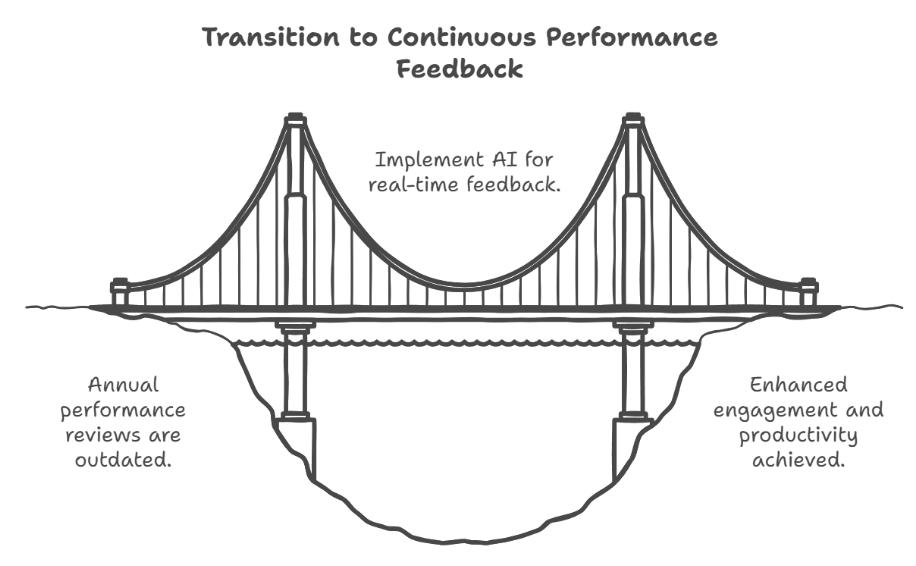
In this article, we’ll explore the major changes that AI is set to bring to HR in 2025. From revolutionizing recruitment processes and predictive analytics for employee retention to personalized employee experiences and streamlined administrative tasks, these advancements are poised to redefine HR’s role within organizations.
1: Enhanced Recruitment Processes
One of the most immediate and impactful areas where AI is making its mark in HR is recruitment. By 2025, the integration of AI will have significantly transformed how companies identify, screen, and interact with potential hires.
Automated Resume Screening
The traditional recruitment process often requires HR professionals to sift through hundreds of resumes manually, a task that is time-consuming and prone to bias. AI-powered tools are changing this dynamic by automating the initial screening phase. These intelligent systems can analyze vast numbers of resumes in seconds, identifying candidates who meet specific criteria. This technology allows recruiters to focus on more critical aspects of hiring, such as interviews and candidate engagement,
AI Chatbots for Applicant Screening
AI is not only automating resume reviews but is also transforming how initial candidate screenings are conducted. Chatbots powered by natural language processing (NLP) can now manage preliminary interviews by asking standardized questions, assessing candidate responses, and providing real-time feedback. These chatbots also answer common candidate questions, creating a more engaging and informative experience. By 2025, these AI tools will play an essential role in streamlining the early stages of recruitment, ensuring that HR professionals have more time to focus on strategic decision-making and personalized candidate interactions.
Key Insight: According to LinkedIn’s “The Future of Recruiting” report, the use of AI tools in the hiring process not only accelerates the recruitment cycle but also minimizes bias, leading to more diverse and equitable hiring practices.
In summary, AI’s application in recruitment is set to make the process faster, more efficient, and fairer. By automating resume screening and enabling initial interactions through AI chatbots, HR departments will be better positioned to attract and retain top talent without the constraints of traditional, manual processes.
2: Predictive Analytics for Employee Retention
Forecasting Employee Turnover
One of the most significant challenges HR departments face is predicting which employees are at risk of leaving. High turnover can be costly and disruptive, making it crucial for organizations to identify and address potential issues proactively. AI-powered predictive analytics is revolutionizing how HR tackles this challenge. By analyzing comprehensive datasets—including employee performance metrics, engagement survey results, historical turnover trends, and even sentiment analysis from internal communications—AI can forecast which employees might be considering departure. These insights allow HR professionals to identify patterns and potential triggers for attrition, enabling timely interventions to improve retention.
Personalized Engagement Strategies
AI doesn’t stop at predicting turnover; it also assists in crafting personalized engagement strategies. Once at-risk employees are identified, AI tools can suggest customized engagement initiatives tailored to individual needs. For example, if an employee’s data suggests a lack of career progression as a potential reason for dissatisfaction, AI can recommend targeted professional development opportunities. Similarly, it can pinpoint areas where team dynamics or work-life balance improvements could make a significant impact. By using these data-driven strategies, HR teams can foster a more supportive and motivating work environment, which in turn helps to reduce turnover and enhance overall job satisfaction.
Key Insight: According to a report by Deloitte Insights on the future of work, the use of predictive analytics in HR can significantly enhance workforce planning and employee engagement. By leveraging AI’s analytical power, organizations are better equipped to anticipate and respond to workforce needs, creating a more stable and motivated workforce.
3: Personalized Employee Experience
Customized Learning and Development
AI’s capacity to process vast amounts of data allows for a highly personalized approach to employee learning and development. By analyzing an employee’s current skill set, career trajectory, and professional goals, AI-driven platforms can recommend specific training programs that align with individual needs. For instance, if an employee demonstrates interest in advancing technical skills but lacks formal training, AI can suggest relevant courses or certifications. This customized approach ensures that training is not only relevant but also enhances productivity and engagement by addressing the unique aspirations of each employee.
Flexible Benefits Administration
Employee satisfaction isn’t just about professional growth; benefits play an essential role as well. AI will revolutionize how HR departments manage and personalize benefits administration by analyzing data on employee preferences, usage patterns, and feedback. With these insights, AI can help HR create flexible benefits packages tailored to meet the diverse needs of their workforce. For example, younger employees might prefer wellness programs and student loan assistance, while older employees might value enhanced retirement plans or healthcare options. AI simplifies the process of matching benefits to preferences, contributing to higher satisfaction and retention rates.
Key Insight: A study by McKinsey highlights that organizations prioritizing a personalized approach to the employee experience report higher engagement levels and job satisfaction. McKinsey’s research indicates that AI’s ability to deliver tailored solutions—be it through learning programs or benefits—creates a more positive and fulfilling workplace culture, enhancing overall retention.
4: Improved Performance Management
Real-Time Feedback and Continuous Evaluation
The traditional model of annual performance reviews is rapidly becoming obsolete. By 2025, AI is expected to fully support a shift toward real-time feedback and continuous performance evaluations. This shift is driven by AI’s ability to provide continuous analysis of employee performance, offering more immediate and relevant feedback than periodic reviews. With AI tools, employees receive timely feedback that aligns with their current projects and responsibilities, facilitating faster growth and adaptation. This real-time evaluation culture fosters transparency and empowers employees to proactively improve their work, resulting in higher engagement and productivity.

Data-Driven Performance Insights
AI doesn’t just enable ongoing feedback; it also brings data-driven insights to the forefront of performance management. AI systems analyze an array of performance metrics to generate comprehensive insights that help HR professionals and managers make more informed decisions. These insights can include productivity trends, skill development needs, and contributions to team dynamics. The actionable data provided by AI allows for targeted interventions, customized coaching, and a clearer understanding of each employee’s strengths and areas for improvement. Such precision helps in refining performance management processes and aligning individual goals with organizational objectives.
Key Insight: Harvard Business Review emphasizes that companies leveraging AI for performance management report increased employee satisfaction and productivity. The publication notes that real-time feedback supported by AI contributes to a more responsive and development-focused workplace environment.
5: Streamlined Administrative Tasks
Automating Payroll and Benefits Processing
Administrative tasks, such as payroll and benefits management, are integral to HR but can be prone to errors and consume significant time. AI automation is set to transform these tasks by enhancing accuracy and speed. By 2025, AI algorithms will handle payroll processing, benefits enrollment, and other routine operations with minimal human oversight, drastically reducing the likelihood of manual errors. Automation not only ensures compliance with complex regulations but also frees HR professionals to focus on more strategic activities that contribute to company growth and employee satisfaction.
Employee Self-Service Portals
AI-driven self-service portals will become increasingly sophisticated, empowering employees to manage their own HR needs independently. These portals can guide employees through tasks such as updating personal information, selecting benefits, and accessing pay stubs, making routine processes seamless and efficient. The incorporation of AI into these platforms allows them to provide intelligent, context-aware assistance, reducing the need for HR intervention and boosting overall productivity. This autonomy enhances the employee experience, fostering a sense of control and trust in workplace systems.
Key Insight: The Society for Human Resource Management (SHRM) highlights how automation and self-service technologies improve HR operations, resulting in greater efficiency and a shift in focus toward strategic functions. SHRM notes that this transformation supports both HR professionals and employees by streamlining processes and reducing administrative burdens.
Conclusion
The potential for AI to revolutionize HR by 2025 is immense. From enhancing recruitment and retention strategies to improving performance management and streamlining administrative tasks, AI is poised to redefine HR’s scope and effectiveness. Embracing these technological advancements will enable HR departments to shift their focus from manual, repetitive work to more strategic roles that directly contribute to organizational success. Companies that integrate AI into their HR functions will not only see improvements in operational efficiency but also in employee satisfaction and retention.
The journey to leveraging AI in HR isn’t just about adopting new tools; it’s about fostering an innovative mindset that prioritizes efficiency, personalization, and continuous development. As organizations look to the future, understanding and embracing AI will be essential for creating a modern, forward-thinking workplace.
✨ Additional Resources ✨ For those interested in exploring more about the role of AI in HR, here are some key resources:
-
LinkedIn Talent Solutions: The Future of Recruiting
-
Deloitte Insights: The Future of Work
-
McKinsey & Company: The Future of Employee Experience
-
Harvard Business Review: How AI Will Change Performance Management
-
Society for Human Resource Management (SHRM): The Future of HR: Automation
These resources offer further insights into the transformative potential of AI and its application in HR strategies for 2025 and beyond. ✨
Ervins Butkevics
Senior AI expert
Certification Center

